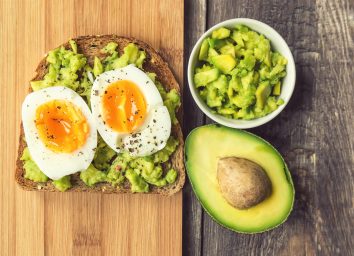15 Bizarre Side Effects of Common Foods
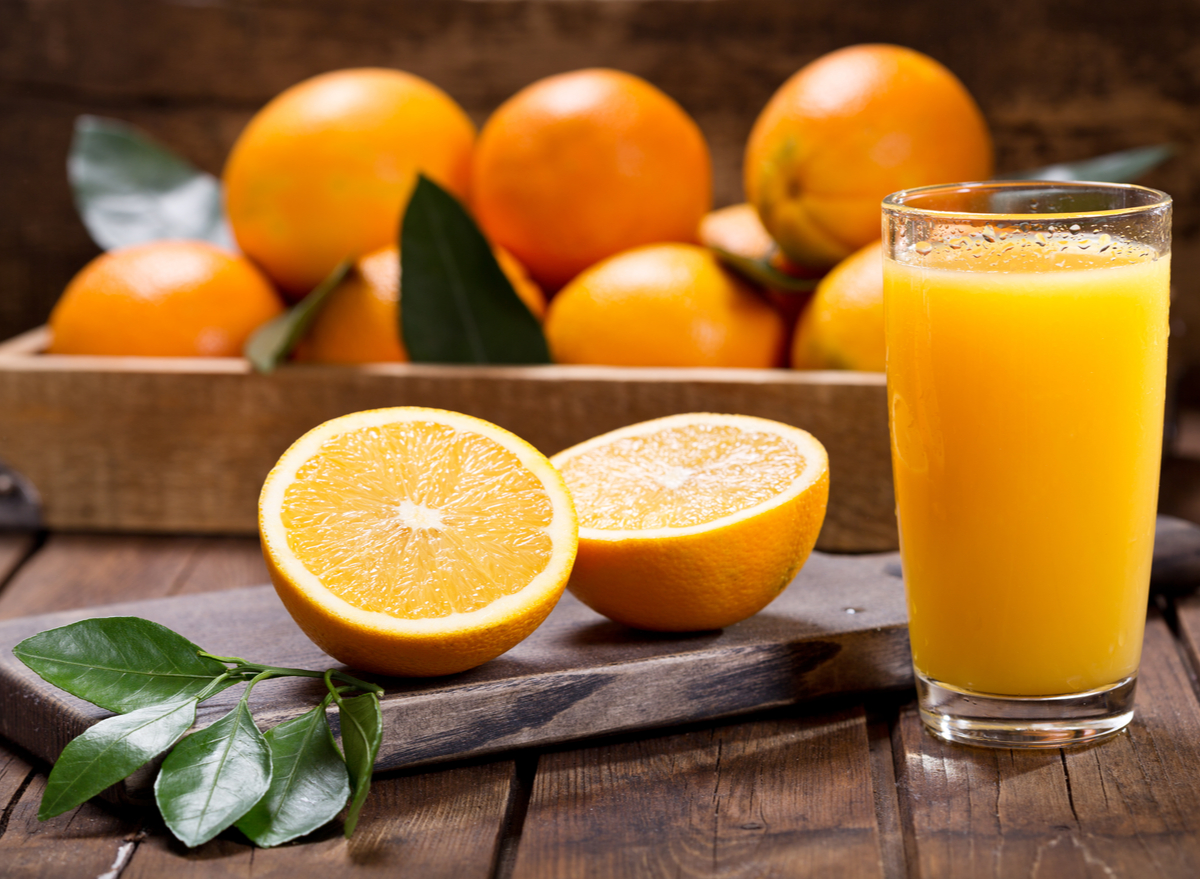
“You are what you eat,” might be a popular saying for a reason, but we’re starting to think that “food is weird,” is perhaps a better motto. After all, food dictates so much of what’s happening inside and outside of our bodies.
Obviously, you know that the food you eat can affect your overall health and weight. But it’s not just your tummy or waistline that feel the impacts of what you eat. Did you know eating certain foods can cause some truly weird physical side effects such as a puffy finger or stinky urine?
With that, here are 20 bizarre and weird side effects of eating common foods. Plus, don’t miss The #1 Best Juice to Drink Every Day, Says Science.
Fingers swell when eating salty food.
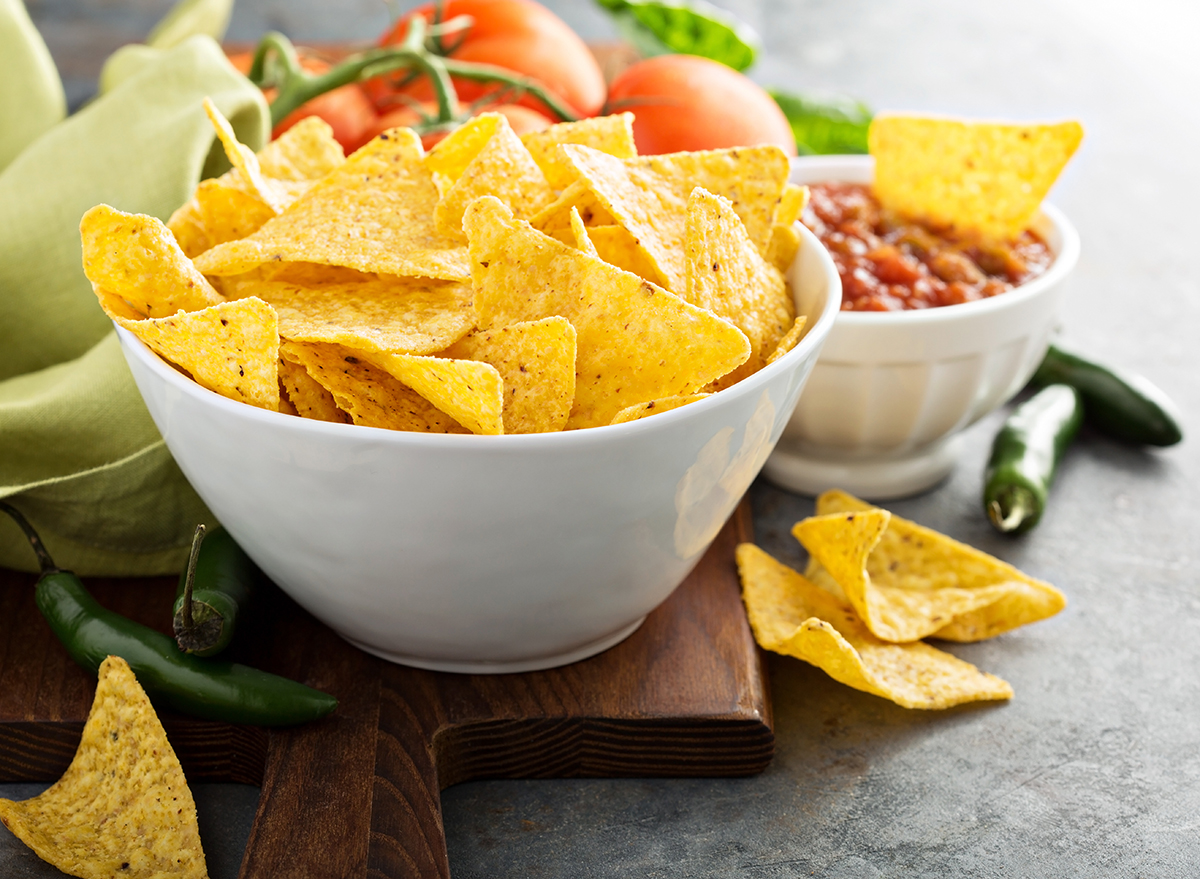
Just picture Violet Beauregarde blowing up and transforming into a blueberry in Charlie and the Chocolate Factory. Now, eating salty foods may not turn you blue (nor will it make you gain 50 pounds in mere seconds, like Violet) but it can cause bloating, which can manifest in your fingers physically swelling.
“Eating foods high in sodium can cause the body to retain water,” says Penny Clark, MS, RDN, CDN, who is also a spokesperson for Country Crock Plant Butter. “Based on the current dietary recommendations to eat less than 2,300 milligrams of sodium a day, most adults consume too much, as the average American diet contains more than 3,400 milligrams, most of that coming from processed foods and restaurant food.”
And it’s not just a bag of salt and vinegar chips that can send your finger a bloatin’. Tons of foods we consume every day have an excess amount of sodium that could cause your fingers to swell.
“Some of the main contributors include pizza, sandwiches, burritos, burgers, processed meat (bacon, deli meats, hot dogs), breads, canned products (soup and vegetables), frozen meals, snack foods (chips, crackers, etc.), condiments (salad dressings, mustard, ketchup), and restaurant foods,” Clark says.
However, swelling in your fingers, hands, or feet isn’t normal—even if you’ve been #TreatingYouSelf all day and indulging in salty, processed foods. For that reason, Clark recommends telling your doctor if you experience swelling in your extremities, as it could be because of an underlying serious condition.
Mushrooms can cause a rash.
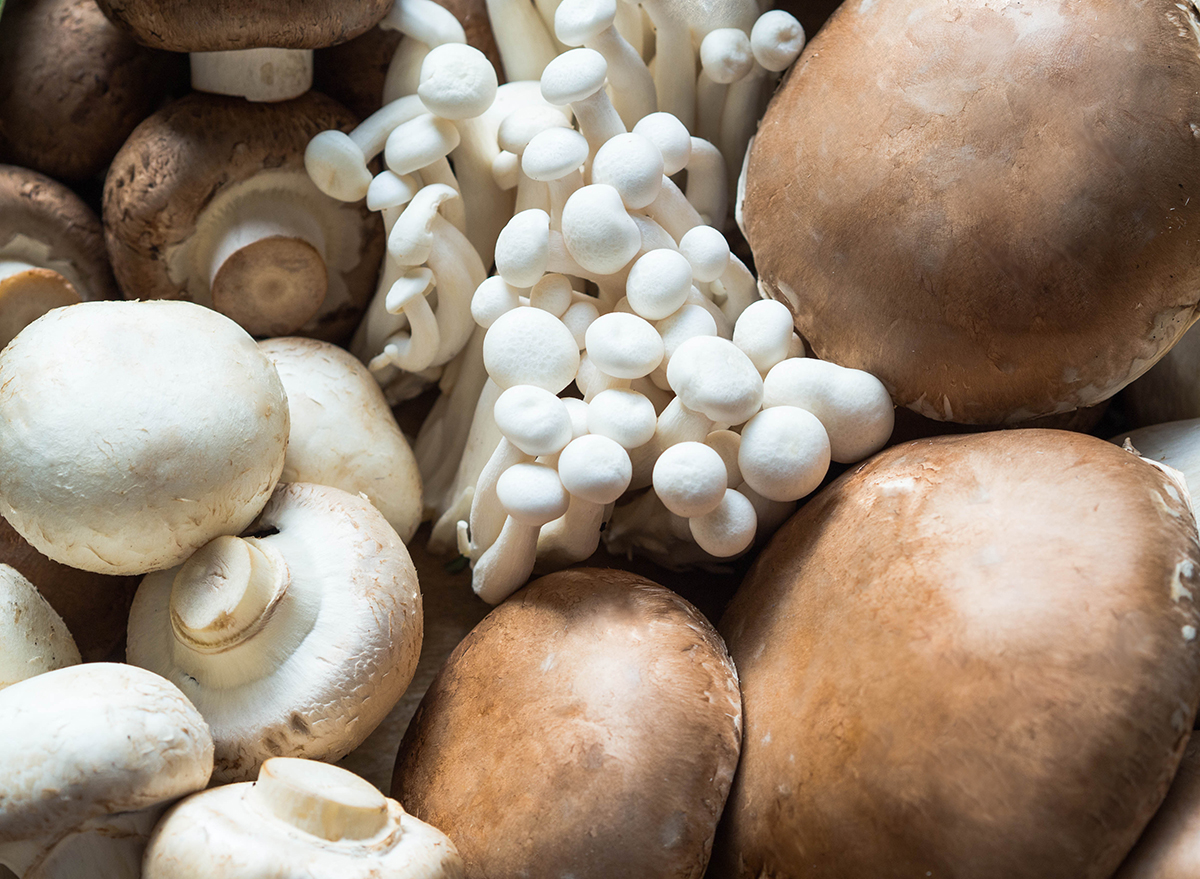
We know what you’re thinking. “Anything can cause a rash if you’re allergic to it—not just mushrooms!” But shiitake dermatitis is a real issue in which people develop skin rashes after consuming shiitake mushrooms.
“Shiitake dermatitis is a rare distinctive skin rash caused by consumption of raw or undercooked shiitake mushrooms,” says Clark. “The rash of linear streaks resembles whip marks and occurs on the torso, but may also appear on limbs, neck, and head.”
But don’t worry. If you’ve had mushrooms before and didn’t develop a rash ASAP, you probably don’t have to fret about this condition.
“It is a rare condition that few people are susceptible to, maybe as little as 2 percent of people that eat raw or undercooked shiitake mushrooms,” Clark says. “Thoroughly cooked, they are excellent to eat with no such side effects.”
Asparagus makes your urine stinkier.
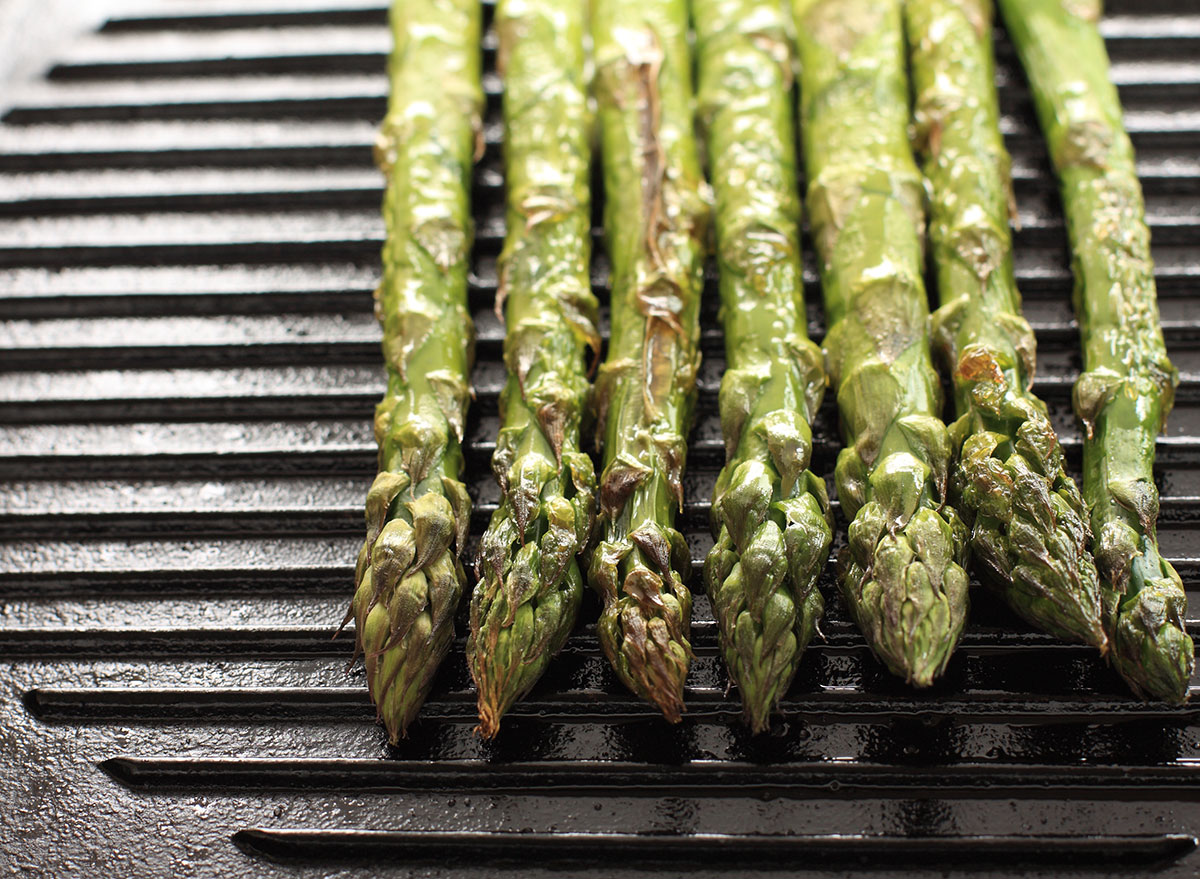
Ever eat a side of roasted asparagus with dinner, then 30 minutes later when you’re urinating, realize the smell is positively pungent?! That’s no coincidence. That’s because of the asparagus.
“Yes, eating asparagus can result in a pungent sulfurous odor that can smell like cooked cabbage,” says Clark. “Some scientists believe this is a result of digestion and the breakdown of sulfur-containing compounds in asparagus that become volatile (airborne) in our urine and can be smelled 15 to 30 minutes after eating asparagus.”
Now, if you’ve had the side of asparagus and never noticed that it’s causing your urine to be stinkier, you’re not alone either. It may actually be stinkier—however, you personally might just not be able to smell it. That’s because of genetics.
“Not everyone can smell these volatile compounds,” Clark says. “There is debate among researchers whether everyone produces the odorants after asparagus consumption or whether only some people can smell the odor… Either way, asparagus is nutritious and low in calories, a good source of vitamin C, high in folate, and a good source of vitamin A.”
In other words, it’s worth the smelly urine!
Soy could lower a man’s sperm count.
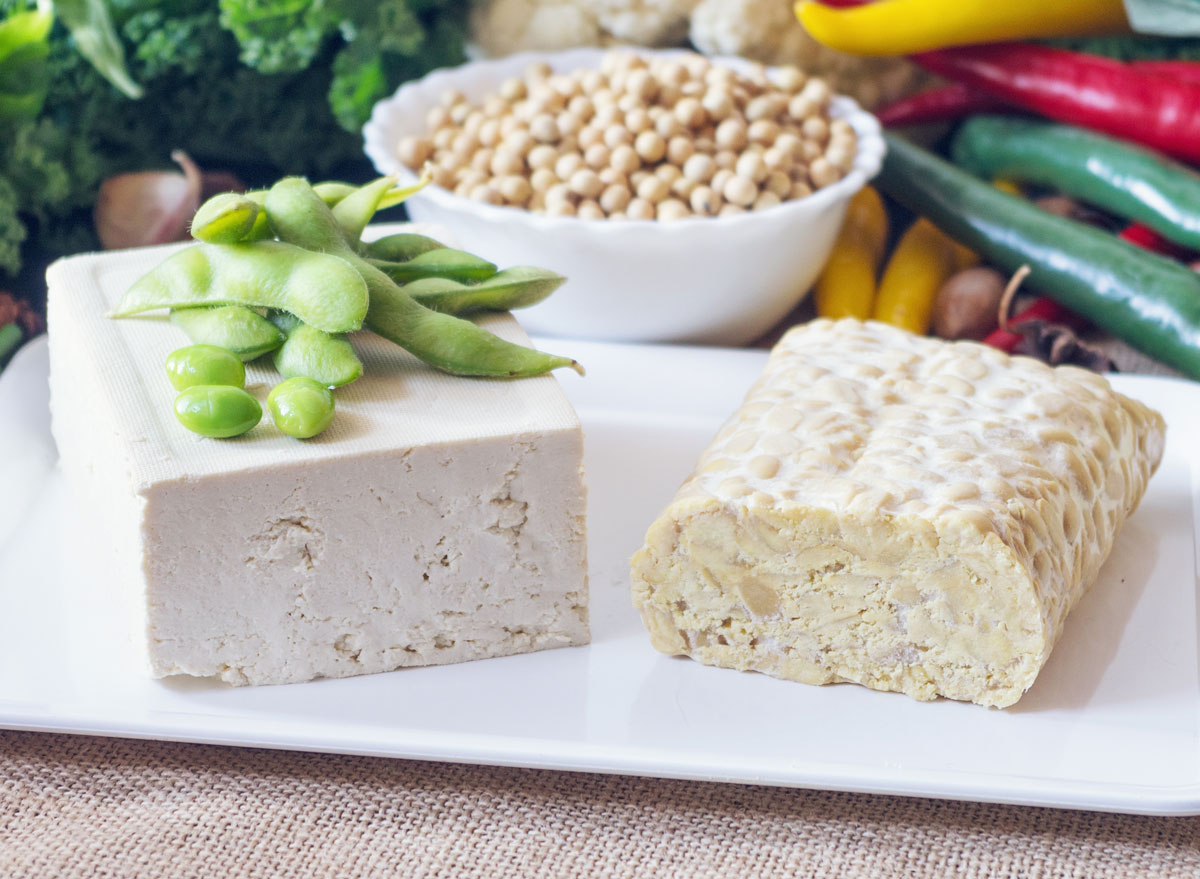
Say what?! While there’s not a ton of scientific evidence to back this particular claim up, one study found that high isoflavone intake—aka soy—is associated with decreased fertility in animals. However, there is limited research to support that soy has a similar effect on the sperm counts in human men.
Soy’s effects on the female reproductive system have proven to be similar, as soy is a known endocrine disruptor. Soy actually mimics the abilities of the hormone estrogen and can cause issues with fertility and potentially even cancer.
Vitamin C can cause orange urine.
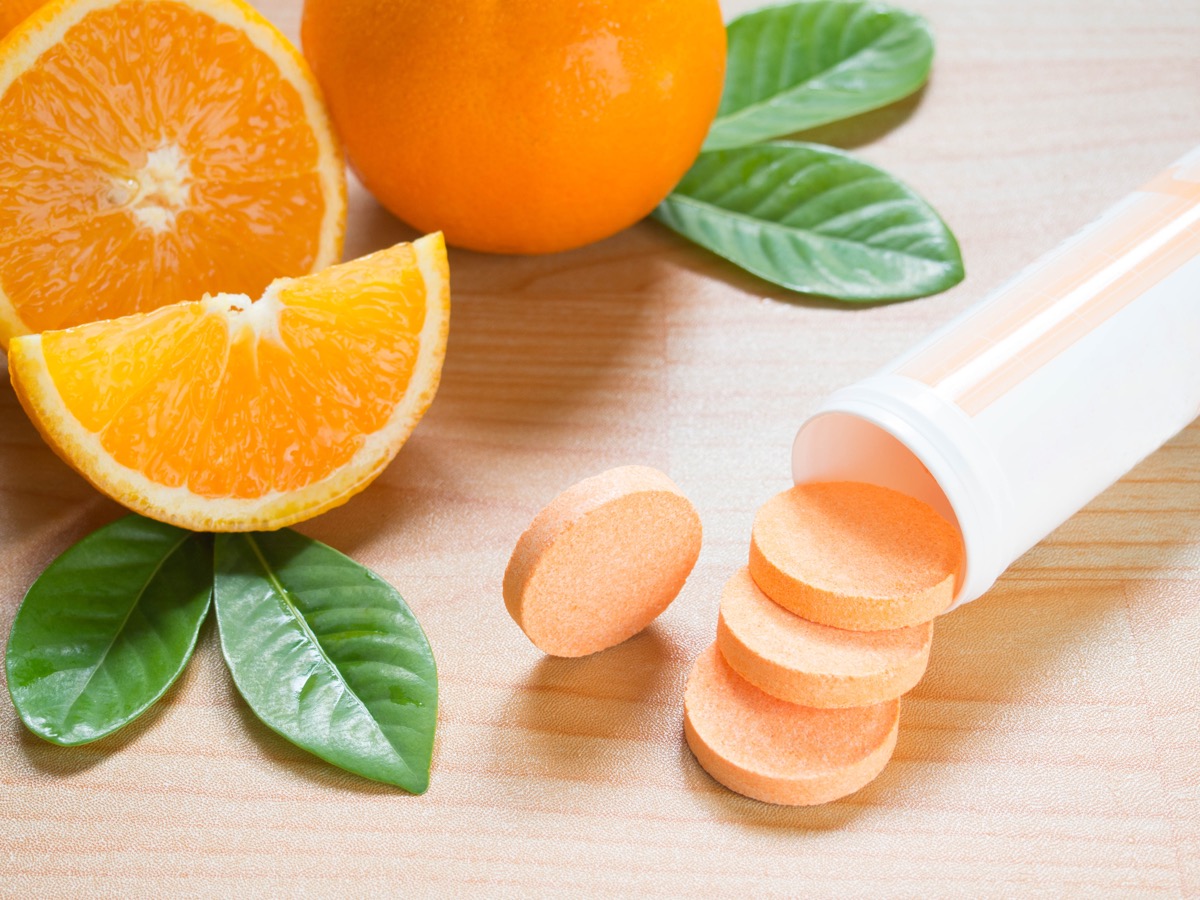
If you pop a vitamin C supplement every morning, drink a glass of orange juice, and slice open a grapefruit for breakfast, that excessive amount of vitamin C could be turning your urine a bright orange hue.
However, vitamin C is not the only food that can cause orange urine.
“Dehydration can cause your urine to turn orange, as can high doses of vitamin C,” says Clark.
Orange pee isn’t necessarily something to worry about—unless of course, it’s caused by dehydration. So, grab your water bottle and drink up when you take your vitamin C pill every morning.
Unripe mulberries can cause you to hallucinate.
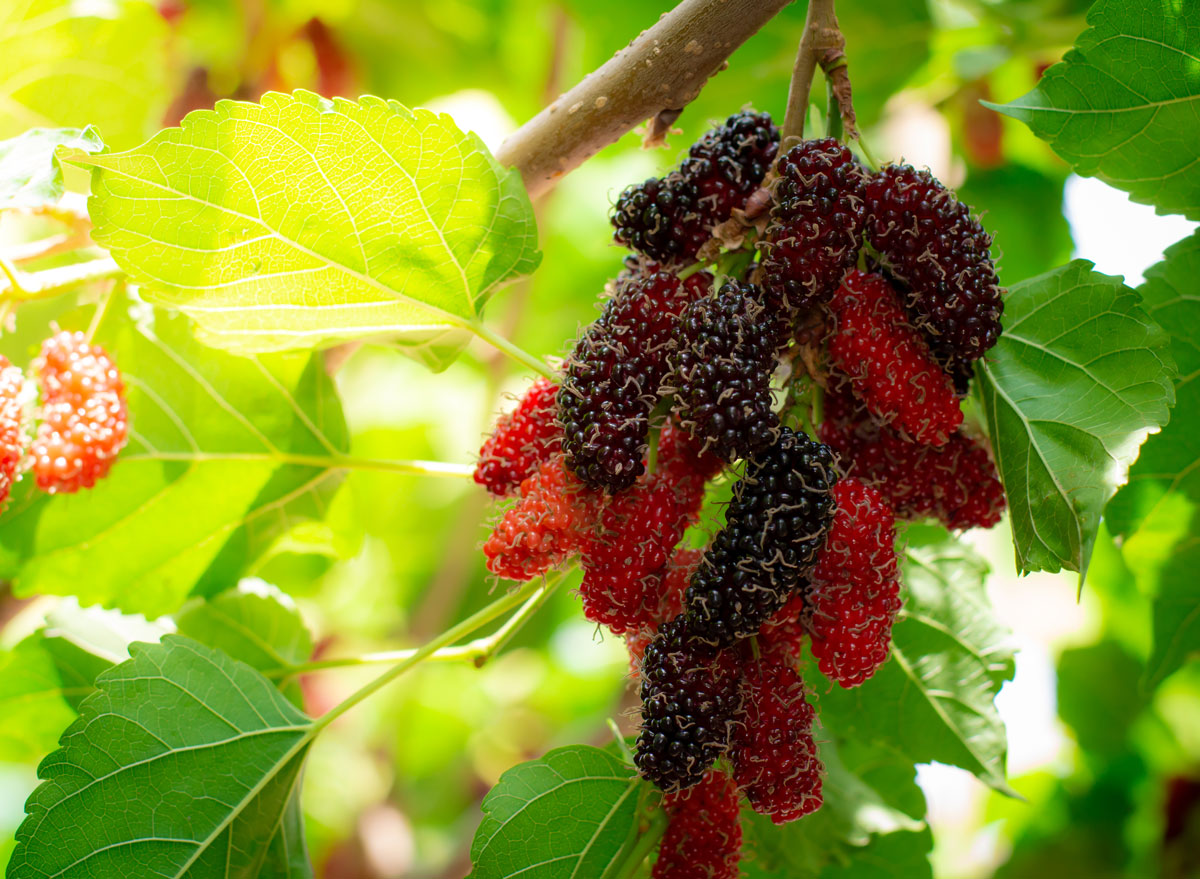
According to a study published in the Indian Academy of Sciences, “The Red Mulberry of North America is well-known as the source of a delicious fruit, but it has been reported that the unripe fruits and a milky sap in the leaves and stems can induce hallucinations and may stimulate the nervous system, causing stomach upset.”
However, Clark clarifies there is insufficient scientific evidence to back up this claim, so the jury is still out on this one.
Dairy can be used as a laxative.

Sort of, kind of. But only if you’re allergic to the main ingredient in dairy, lactose.
“People who are lactose intolerant can’t digest lactose in milk and milk products because their bodies don’t produce enough of the enzyme lactase,” says Clark. “As a result, when they consume dairy, they can experience diarrhea, gas and/or stomach cramps.”
If you’re lactose intolerant, Clark suggests skipping the dairy altogether and springing for a lactose-free alternative. “As dairy-free alternatives continue to rise in popularity and go mainstream, whether it’s cheese, butter, or anything in between, it provides those who are lactose intolerant or have dairy sensitivities [with more flexibility] while dining at home or out.”
Too many carrots can turn your skin orange.

Forget the tanning salon—carrots apparently have the (less expensive) ability to turn your skin a more orange-y color.
“Eating too many carrots or other foods high in beta-carotene can cause a yellow-orange discoloration of the skin, especially in the palms of the hands and soles of the feet,” says Clark.
But, how? When you eat too many carrots, the excess beta-carotene has nowhere to go once it enters the bloodstream. So, it gets stored under the skin because it’s surplus. Once stored under the skin, it has the ability to actually change the hue of your pigmentation.
Actually, carrots aren’t the only food with this ability.
Pumpkins can cause orange skin, too.

Yup, pumpkins can also be to blame for an orange or yellow tint of the skin. This is because, like carrots, pumpkins are also rich in beta-carotene. While every 3.5 ounces of raw carrots has about 8.3 milligrams of beta-carotene, one cup of canned pumpkin has about 17 milligrams of beta-carotene.
Sweet potatoes can also cause orange skin tint.
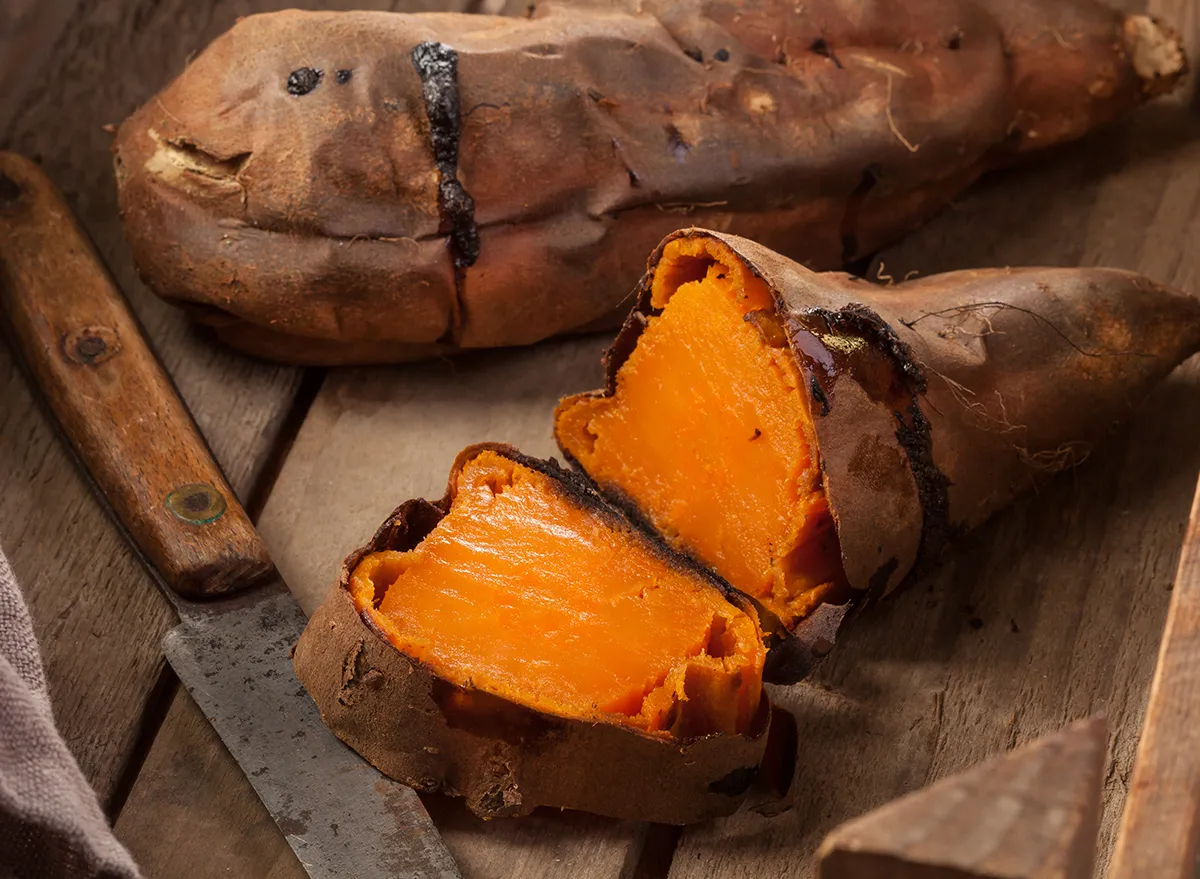
Wow—you thought we were done with the orange skin tint thing, right? Turns out, no, as pumpkins and carrots aren’t the only vegetables that can turn your skin an orange tint. Eating too many sweet potatoes can also have the same effect, believe it or not.
Despite one cup of canned pumpkin having 17 milligrams of beta-carotene, it seems like sweet potatoes actually take the cake. According to the U.S. Department of Agriculture, one cup of mashed sweet potato has about 31 milligrams of beta-carotene.
Beets, rhubarb, and blackberries can turn your urine pink.
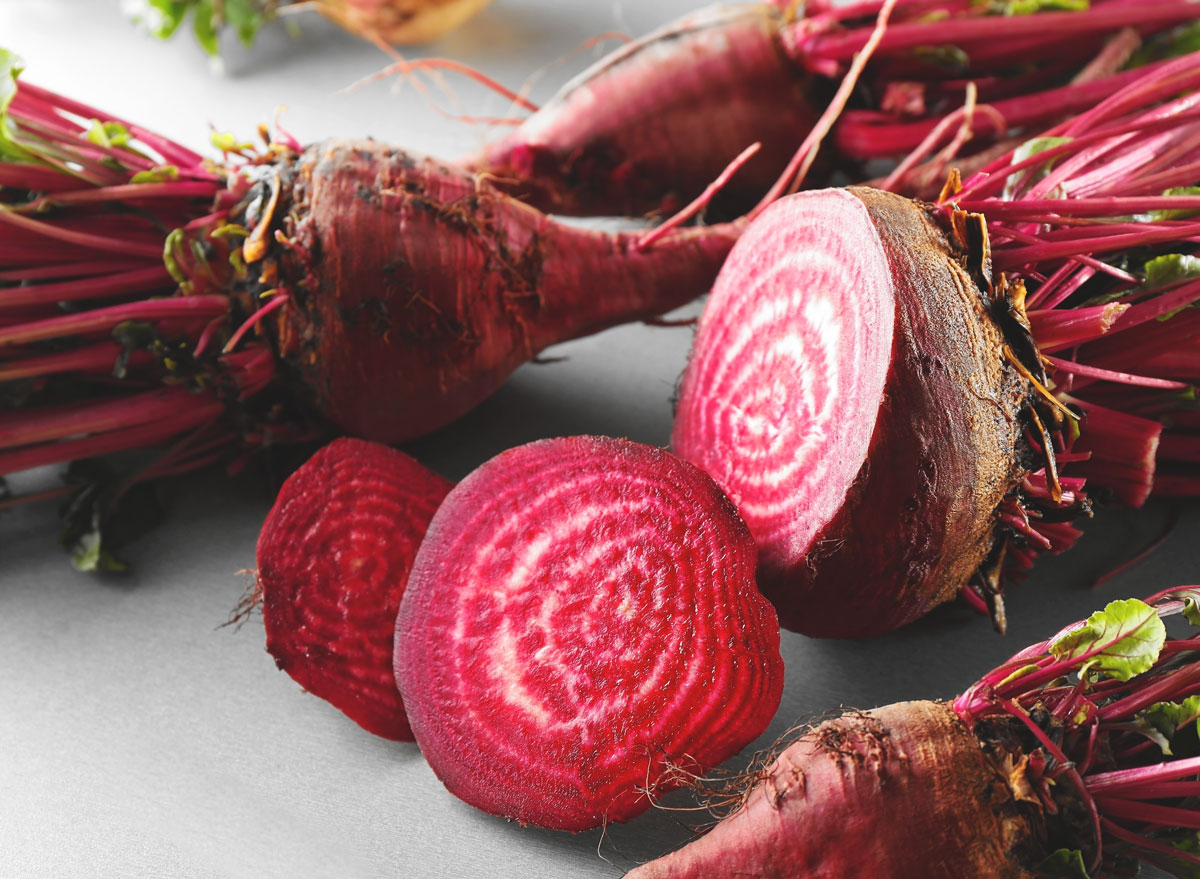
While factors like vitamin C and dehydration can certainly cause orange urine, more reddish-colored vegetables and fruits can also have an impact on the color of urine.
“Yes, plant pigments and other chemical compounds in rhubarb, blackberries, and beets can temporarily turn urine pink or red,” says Clark.
It’s totally harmless and not indicative of a health issue, but consuming lots of blackberries, beets, and/or rhubarbs could cause you to a double-take next time you check out your pee. And it’s not always a perfect pink or red, either—these reddish foods can cause a “tea” color as well.
Hot sauce causes insomnia.
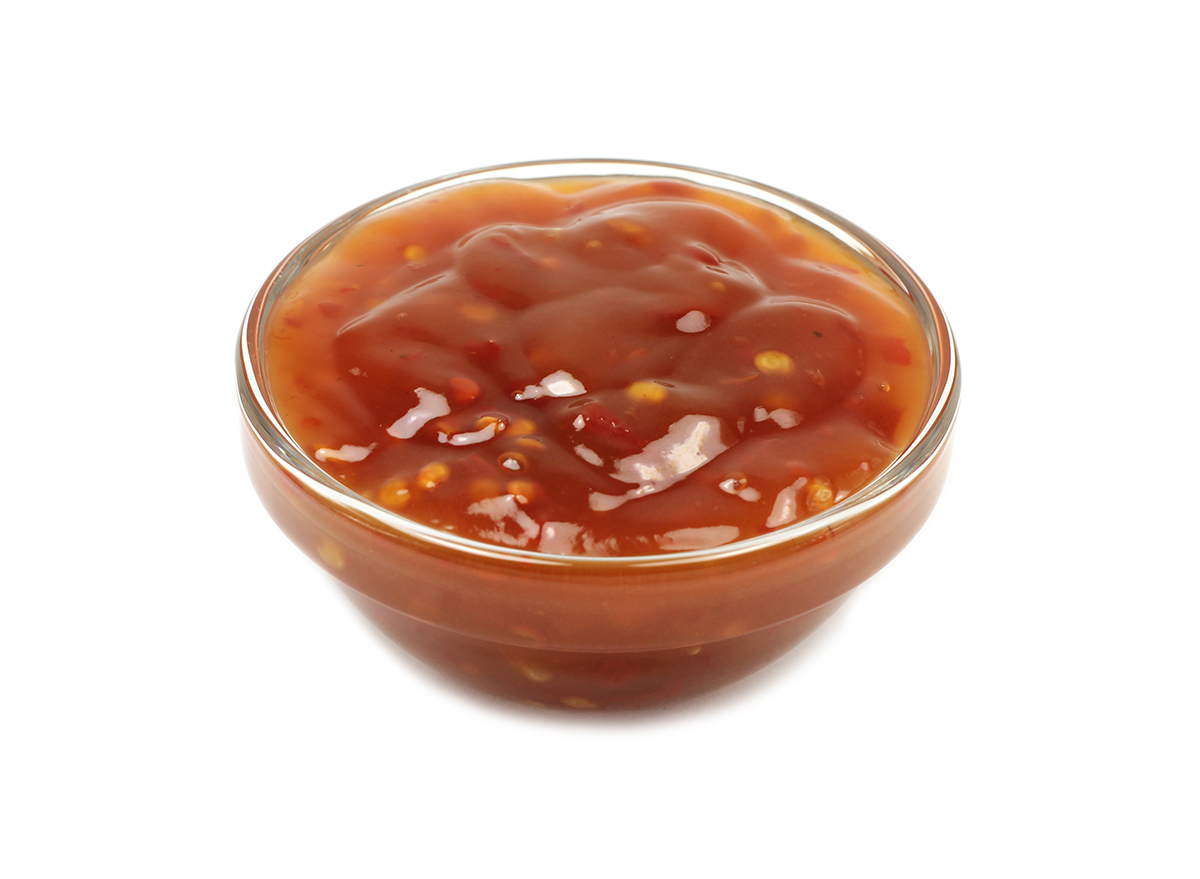
Not sure what’s keeping you up at night? It could be all that hot sauce that you keep in your bag.
In one study, men were given tabasco sauce and mustard with their evening meals and had a more difficult time falling asleep. Scientists believe it may have something to do with thermoregulation—the body’s process of regulating its core internal temperature in order to get to sleep.
It’s not just Tabasco sauce either. Spicy meals, in general, could potentially contribute to insomnia and difficulty sleeping.
Nutmeg can cause hallucinations.

Who knew that the seemingly benign spice nutmeg wasn’t just for Thanksgiving Day pies? According to ABC News, large doses of nutmeg can actually cause hallucinations, thanks to a compound called myristicin.
“Nutmeg contains myristicin, a natural compound that has mind-altering effects if ingested in large doses. The buzz can last one to two days and can be hallucinogenic, much like LSD,” ABC News says.
However, tripping out on nutmeg has a lot of nasty side effects. After consuming large doses of nutmeg, you could experience nausea, vomiting, and diarrhea. It could also potentially cause heart and nerve damage as well.
Sugar-free gum could cause diarrhea.

And no, not if you’re just lactose intolerant. The sweetener in many sugar-free chewing gum brands—Sorbitol—could potentially cause the runs. Apparently, our bodies are not great at digesting Sorbitol, so it has nowhere to go but out, and when it goes out, it doesn’t go pretty.
Foods that are aphrodisiacs can boost libido.
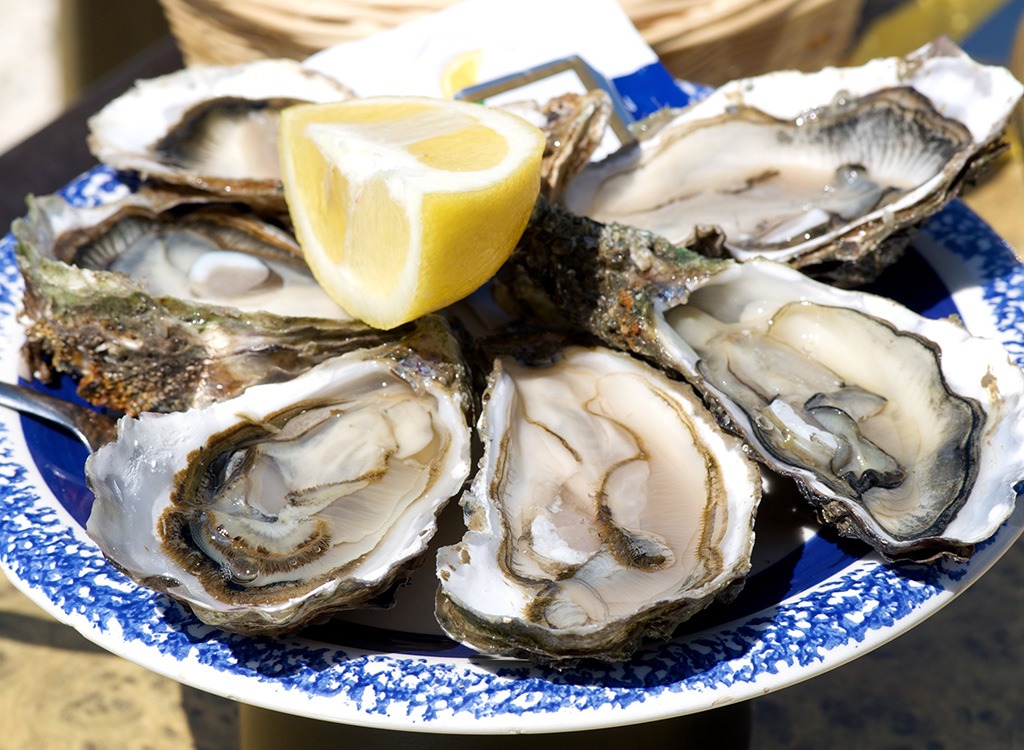
You bet they can! An aphrodisiac is any kind of food or supplement that helps to sexually arouse a person. Foods like raw oysters, strawberries, and chocolate can really make a difference if you’re trying to turn it on in the bedroom.



